Yemen war. Russia's interest - the weakening of the Saudis
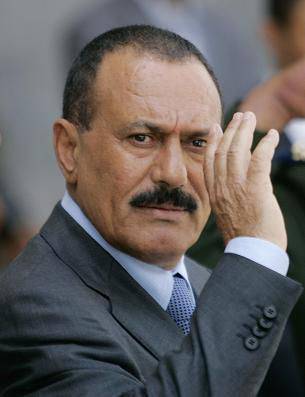 The difficult social and economic situation in Yemen is aggravated by chronic political instability, which seems to have become organic for this Arab state. Until the notorious “Arab Spring”, Yemen’s President Ali Abdullah Saleh managed to hold power for thirty-four years, first in the Yemen Arab Republic (YAR, North Yemen), and then, after the unification of North and South Yemen, in the united Yemeni state. Saleh came to power in North Yemen at the age of just thirty-six. Behind his shoulders was a twenty-year military career and a long journey traveled from a cadet of an armored officer’s school to the commander of the Taiz military district of the army of North Yemen. Ali Abdullah Saleh, a native of the Sanhan tribe who was part of the Hashid union, managed to maintain more or less peaceful relations between the various tribal groups that form the basis of the Yemeni population. This case, by the way, was very complicated, because over the centuries stories Yemen’s relations between the tribes inhabiting it could hardly be called peace loving.
The difficult social and economic situation in Yemen is aggravated by chronic political instability, which seems to have become organic for this Arab state. Until the notorious “Arab Spring”, Yemen’s President Ali Abdullah Saleh managed to hold power for thirty-four years, first in the Yemen Arab Republic (YAR, North Yemen), and then, after the unification of North and South Yemen, in the united Yemeni state. Saleh came to power in North Yemen at the age of just thirty-six. Behind his shoulders was a twenty-year military career and a long journey traveled from a cadet of an armored officer’s school to the commander of the Taiz military district of the army of North Yemen. Ali Abdullah Saleh, a native of the Sanhan tribe who was part of the Hashid union, managed to maintain more or less peaceful relations between the various tribal groups that form the basis of the Yemeni population. This case, by the way, was very complicated, because over the centuries stories Yemen’s relations between the tribes inhabiting it could hardly be called peace loving. However, after the so-called "Arab Spring" - a series of "color revolutions", prepared with the direct participation of the United States and its allies - Saudi Arabia, Qatar, Kuwait, in a number of countries in the Middle East and North Africa, Yemen's political regime also faltered. In 2012, Ali Abdullah Saleh, who reigned for thirty-four years, had to leave his post. But in fact, Yemen’s political regime remained without major changes, since former Vice President Saler Mansur Hadi came to power in the country, and the former President was given absolute guarantees against any prosecution.
Who are the Houthis?
Yemen is a mono-national and mono-confessional country. Virtually all of its population are Yemenite Arabs who profess Islam. However, residents of different regions of Yemen belong to opposing trends in Islam. The southern and eastern regions of the country are inhabited by followers of Sunni Islam who are religiously close to the population of neighboring Saudi Arabia and most other countries of the Arabian Peninsula. However, in the north-west of the country, the Zaydis have a strong position, one of the branches of Shi'ism, going back to Zeid Ibn Ali, the grandson of the third Shiite Imam Hussein. The followers of Zeid ibn Ali, like other Shiites, were convinced of the need to create a state led by the descendants of Imam Ali. However, the Zaydites differed from other Shiites by the absence of the doctrine of Mahdi (the “hidden imam”), the predestination of human destiny and the concealment of faith.
In North Yemen, a Zaydite state led by an imam was created in 901 AD. and lasted for almost a millennium. It was only in 1962 that the monarchy of the Zeidit Imam was overthrown and the Yemen Arab Republic was formed in the territory of North Yemen. YAR President Ali Abdullah Saleh himself came from a Zeidit tribe, but much of the Zeidites were unhappy with his rule, arguing that Shiites were subject to discrimination by the Sunnis in Yemen.
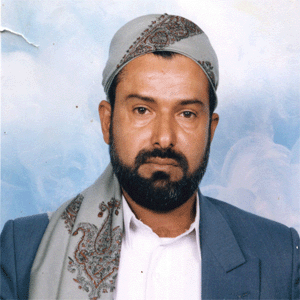 In 2004, interfaith controversy in Yemen reached its peak and entered the phase of armed conflict. The Zeidites, who inhabit Saad province in the far north-west of Yemen, have accused the Yemeni leadership of pro-American sentiment and discrimination against the Zeidite population. The self-proclaimed Imam Hussein Badr al-Din al-Husi stood at the head of the Zaydit movement. On behalf of this religious and political leader, the opposition Zaydit movement was called Hussites. In fact, the Hussite movement is called Ansar Alla. Supporters of the government accused the Hussites of intending to overthrow the Republican system and recreate the Zeidite Imamate in Yemen after the model of the state that existed before the September revolution of 1962. In the same 2004, Mr. Hussein al-Husi was killed, and the Zeidit movement was led first by his father Badr al-Husi and then by his brother Abdul-Malik al-Husi.
In 2004, interfaith controversy in Yemen reached its peak and entered the phase of armed conflict. The Zeidites, who inhabit Saad province in the far north-west of Yemen, have accused the Yemeni leadership of pro-American sentiment and discrimination against the Zeidite population. The self-proclaimed Imam Hussein Badr al-Din al-Husi stood at the head of the Zaydit movement. On behalf of this religious and political leader, the opposition Zaydit movement was called Hussites. In fact, the Hussite movement is called Ansar Alla. Supporters of the government accused the Hussites of intending to overthrow the Republican system and recreate the Zeidite Imamate in Yemen after the model of the state that existed before the September revolution of 1962. In the same 2004, Mr. Hussein al-Husi was killed, and the Zeidit movement was led first by his father Badr al-Husi and then by his brother Abdul-Malik al-Husi. Blaming Yemen’s leadership of the “corruption” of the United States, the Zeidit population of the northwest of the country demanded the creation of Shiite autonomy. Naturally, the Hussites supported Shiite Iran. In turn, the “world community” represented by the United Nations, following in the wake of American foreign policy, opposed the Hussite opposition. In November, UN 2014 imposed sanctions on leaders of the Hussite movement. For a long time, the conflict was of Intra-Yemeni nature, but in 2009, the Huthis managed to provoke hostilities by the army of Saudi Arabia. Thus, the largest state of the Arabian Peninsula and the informal leader of the Sunni world turned into an interfaith and inter-tribal conflict in Yemen. However, for a long time it didn’t go further than periodic small clashes between the Saudi army and Yemeni insurgent detachments, which did not allow us to speak of the full participation of Saudi Arabia in the Yemeni conflict.
On the other hand, in addition to the Yemeni armed forces, militants of numerous Sunni radical organizations operating in Yemen and Saudi Arabia also came out against the Hussites. In the middle of August, 2014 in Yemen, in addition to armed clashes, began mass demonstrations of Houthis in the cities. The demonstrators demanded the resignation of the government of the country, accused of corruption. Major clashes began in the capital of Yemen, Sana'a. In the end, the Houthis managed to seize a number of government buildings in the capital. 14 October 2014, the city of Damar and the headquarters of an armored division in the province of Hodeidah came under the control of the Hussites. The next day, October 15, the city of Ibb was captured by Hussites in the southwestern part of Yemen. As their positions strengthened, the Hussites posed an increasing threat to the Yemeni government.
Hussite revolution
The situation escalated to the limit in January 2015, when the next riots broke out in the capital of Yemen, Sana'a. Hussites surrounded the residence of Yemeni Prime Minister Khalid Bahah, armed clashes between Shiite militants and government forces began in the center of the capital, outside the presidential palace building. In the end, after a bloody battle in which nine people were killed and 60 was injured, the presidential palace in Sanaa was captured by Hussite militants. On the same days, a number of attempts were made on the country's top officials and army generals, including Defense Minister Mahmoud Al-Subaihi and the commander of the 135 Army Brigade Abu Awaj, in the capital.
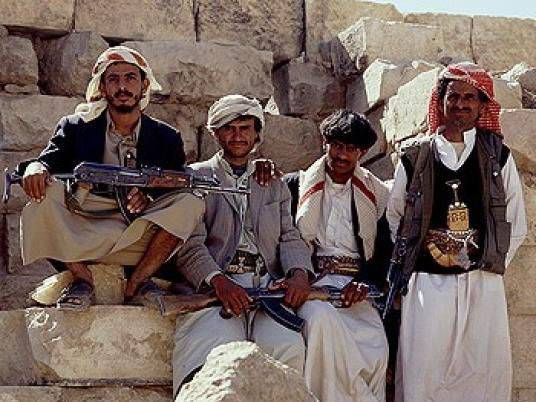
The aggravation of the internal political situation in Yemen led to confusion among the country's political elite. On January 22, President Abd Rabbo Mansour Hadi submitted his resignation, and members of the Yemeni government also wished to resign from their posts. A series of thousands of anti-American rallies were held in the capital. Apparently, the United States to the last hoped to change the course of events in Yemen, clearing the flywheel of chaos, which became the logical outcome of the bloody US policy in the Middle East. 25 January it became known that the President of Yemen, Hadi still canceled the decision on his resignation. February 1 Hussites presented an ultimatum to the main political parties in Yemen, demanding the creation of a coalition government to normalize the situation in the country. The Socialist Party of Yemen, the Herak movement, and seven other political parties and organizations responded to the Houthit’s proposal. The Provisional Government of the country was proclaimed the Revolutionary Committee, headed by Mohammed Ali Al-Khusi. Thus, a revolution actually took place in the country, headed by Shiites from the Hussite movement.
The main opponents of the Hussites - the Yemeni supporters of the Sunni "al-Qaeda" - in turn announced their joining the Islamic State (ex-ISIL). 15 February 2015. Hussite troops began an assault on Aden, the main city of South Yemen, which became the main base of anti-Hussite forces during the confrontation. Large-scale clashes between al Qaeda supporters and the Hussites began in Yemen.
Al-Qaeda militants carried out a series of terrorist acts against the Hussites, including blowing up a car near a school where a Shiite meeting was held, attacking a Hushite training camp in El Beida, and blowing up a patrol of the Hussite militia. On March 17, the Hussites, who had taken control of the Yemeni air force by this time, inflicted aviation a blow to the temporary residence of President Hadi, who fled to Aden. Clashes between al-Qaeda and the Hussites began in Lahj province. It is significant that on March 21, the United States organized the evacuation of its troops, who until recently had been stationed at a military base in Al Khut. As for the American embassy in Yemen, it ceased to function in February 2015.
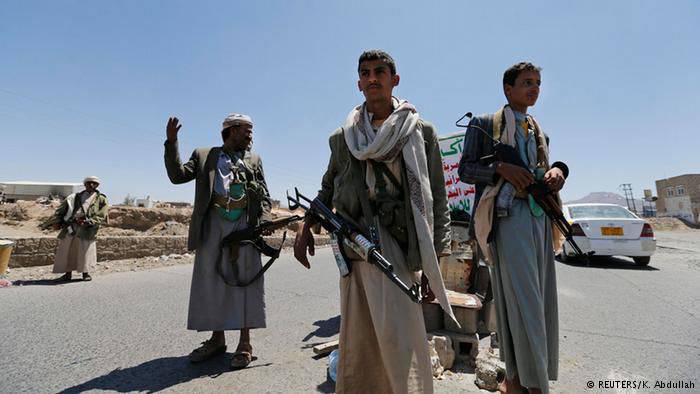
Against the backdrop of chaotic bloodshed in Yemen, the United Nations once again showed its "paper" uselessness. The meeting of the UN Security Council on March 22 confirmed the legitimacy of the presidential power of Abd Rabbo Mansur Hadi, who in reality has little control over the situation in the country. In fact, in this way, the UN signed its own impotence and entrusted the resolution of the Yemeni conflict to the monarchies of the Arabian Peninsula - the main US strategic partners in the region. It did not take long to wait. Already on 23 in March, Yemen’s Foreign Minister, Riad Yassin, turned to the Gulf Cooperation Council for assistance. Mansoor Hadi, the current president of Yemen, accused Iran of fomenting an anti-government uprising and called the Hussites "Iranian puppets."
Saudi Arabia, which has long rivaled Iran for influence in the Muslim world, has declared its readiness to support the “legitimate government of Yemen” in opposing the Hussite militants. Yemen’s President Mansour Hadi, meanwhile, fled to Djibouti because his stay in the country became impossible - the Hussite militants practically surrounded Aden, capturing a military air base fifty kilometers from the city. 26 March 2015 King of Saudi Arabia Salman bin Abdel-Aziz announced the start of a military campaign against the Hussites. The Saudi Arabian armed forces in the operation against the Yemeni Shiite opposition joined the UAE, Kuwait, Bahrain, Qatar, Jordan, Morocco, Egypt and Pakistan. Egyptian President Abdel Fattah Sisi declared his readiness to send ground troops to Yemen, describing the situation in Yemen as an "unprecedented threat." The Sudanese leadership also declared its readiness to send armed contingent to fight against the Hussites. Despite the fact that Sudan was in very bad relations with the United States not so long ago, the general Sunni solidarity in this case turned out to be stronger than anti-American sentiments. The leadership of the United States of America, including its President Barack Obama, did not fail to state its support for the actions of the Arab coalition, under the leadership of Saudi Arabia, which had attacked Yemen.
The aggression of the American satellites
On the night of March 26, Arab coalition aircraft launched a series of air strikes on Sana'a, the capital of Yemen. The blows affected not only the air forces and air defense of Yemen captured by the Hussites, but also Sana'a international airport, as well as residential areas. Killed at least 20 people in Sana'a and 65 people in the province of Saada and the northern suburbs of Sana'a. The Egyptian Navy took over the cover of the operation, the ships of which fired warning shots in the direction of Iran’s ships heading for the territorial waters of Yemen. Presumably, it was the Egyptian army units together with the Saudi army that would take part in the land operation against the Hussites in Yemen. Saudi troops will invade Yemen from their territory, and Egyptian troops through the Red Sea. Meanwhile, Yemen’s air defense units managed to bring down several Saudi aircraft. On the border with Saudi Arabia, Yemeni forces were able to recapture several units of Saudi armored vehicles, including Tanks.
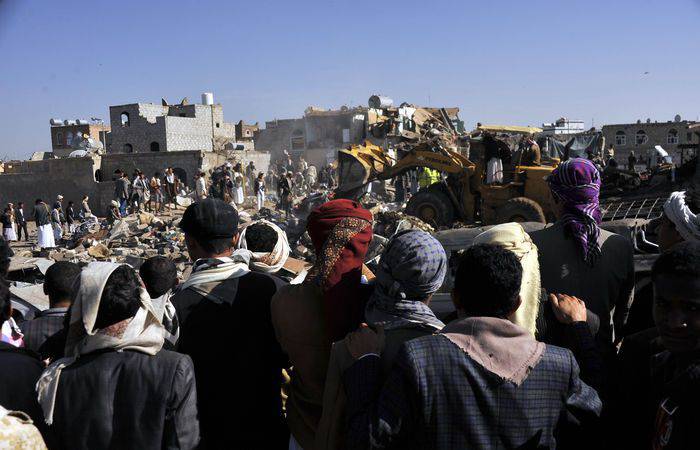
As for the international reaction to the war in Yemen, it turned out to be quite predictable. Russia's position in this conflict is unequivocal - Moscow hopes for a peaceful settlement of the confrontation between Shiites and Sunnis in a distant Arab country. At the same time, the Ministry of Foreign Affairs of the Russian Federation drew attention to the obvious practice of double standards used by the United States and its allies in dealing with situations in Yemen and Ukraine. Iran, Syria, the Lebanese Shiite Hezbollah movement came out against the aggressive policy of Saudi Arabia against Yemen. Foreign military intervention in the internal affairs of Yemen was condemned by Lebanon and Iraq, and the Popular Front for the Liberation of Palestine stressed that Saudi Arabia was acting in the interests of the United States and the West and objectively pursuing anti-Arab policies in the region.
Alaeddin Boroujerdi, Chairman of the Committee on National Security and Foreign Policy of the Iranian Shura Council, stressed that the United States was the main instigator of the armed invasion of Saudi Arabia and its allies in Yemen. According to the Iranian politician, the Saudi authorities neglect the interests of the Arab and Muslim world as a whole, which ultimately can entail negative consequences for Saudi Arabia itself, since the war unleashed in Yemen will not be limited to Yemeni territory.
Information about the true causes of the armed conflict in Yemen and its nature in the world media is one-sided, if we talk about the Western press controlled by American and European ruling circles. The US is interested in weakening Iran’s position in South-West Asia and is seeking to maintain the dominance of Saudi Arabia and other feudal monarchies, which are their longtime allies. The Shiites have always been viewed by Americans as an unreliable element, potential allies of Iran. Only in Iraq did the Americans support the Shiites in opposing the regime of Saddam Hussein. In Syria, Lebanon, Bahrain, Yemen, Americans have always opposed Shiites, seeing in them as agents of Iranian influence in the region.
Meanwhile, Iranian Shiites and Zaidis of North-West Yemen have significant differences from each other. As mentioned above, these differences are doctrinal in nature, and the historical development of Yemen’s Yeidi and Iranian Shiites took place independently of each other, which was due to the geographical distance between the two states. The Hussites themselves say that Iran does not provide them with serious military and material support. In turn, both the US and Saudi Arabia associates see the hand of Iran in the Hussite uprising. In their anti-Iranian sentiment, the Americans and Saudis are even ready to play into the hands of the Islamic State, that is, the very Al-Qaida, which the United States itself is included in the list of the most dangerous terrorist organizations of the modern world. It turns out a strange situation when the Americans oppose the “Islamic State” in Iraq, supporting the Kurds, but in Yemen actually provide al-Qaeda with help, directing against its main opponents - the Hussites, the armed forces of the allied states of Saudi Arabia, the UAE, Qatar, Kuwait and other Arab Sunni states.
However, it is already clear that in any case the bloodshed occurring in Yemen’s territory is just another episode of the large-scale war in the Middle East unfolding in full swing. The political map of South-West Asia, formed after the Second World War and practically in an unshakable state that has existed up to the present time, is likely to change. Destabilization is also expected by the monarchical regimes of the Persian Gulf, which have conserved their political and social structure in a medieval state. It should be recalled that a significant Shiite minority also lives in Saudi Arabia. Shiites inhabit the eastern province of the country - one of the most economically promising oil-bearing regions. It is not inconceivable that, following the Shiite uprising in Yemen, Saudi Arabia will also “flare up”. At least, it can be said with confidence that war will be inevitable on its south-western borders - the same Hussite units will be able to attack Saudi positions from Yemen’s territory.
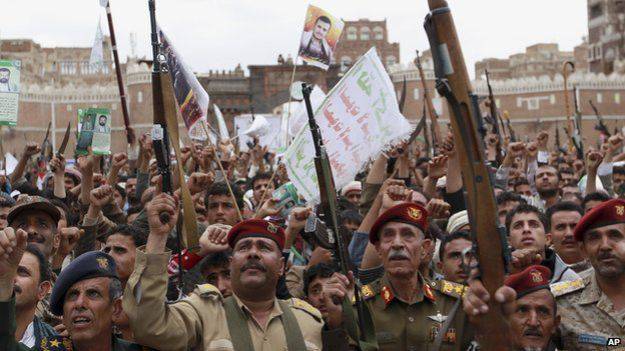
Despite the fact that economically Yemen is a very poor country, one should not underestimate the militancy of the Yemeni population. In fact, the Yemenis are armed people. Yemeni society still retains tribal division, and each tribe has its own armed formations, many of which have not only small arms, but also heavy armored vehicles. The morale of Yemenis is also high, especially since for most of them participation in hostilities is quite usual. In addition, Yemeni militia - the Hussites have considerable combat experience. On the one hand, they were trained by officers who served in the Yemeni army and even underwent military training in the Soviet Union, on the other hand, in more than a decade of armed conflicts with government troops, the Hussite militants and themselves were fairly skilled in military craft. Well, you can not deny the most important factor - the presence of ideological motivation. Of all the opponents of the Hussites, only militants of ultra-radical Sunni groups are fully motivated by ideological motivation, whereas one can hardly speak of the ideological nature of Saudi mercenaries.
Russia is beneficial defeat of Saudi Arabia
As for Russia's position on the Yemeni conflict, it is obvious that our country will only benefit from the weakening of Saudi Arabia. The Saudi monarchy, like other feudal states of the Persian Gulf, were long-standing satellites of the United States of America, which for more than half a century interfered with the Soviet and then Russian influence in the Middle East. For the Saudi regime, our country should have its own accounts - ranging from the support of the Saudis to the anti-Soviet militants in Afghanistan and ending with the sponsorship that Saudi Arabia and some other countries of the Gulf provided and provide to religious extremists in the Russian Federation itself, first of all - in the republics of the North Caucasus. For a long time, Saudi Arabia played a crucial role in the destabilization of the political situation in Syria, a country that is Russia's key ally in the Middle East region. After all, it is Saudi Arabia and other countries of the “Gulf” that were behind the support of the Syrian, and before that, the Libyan “opposition”, which plunged their countries into civilian wars. The decline in oil prices, which has dealt a serious blow to the modern Russian economy, is also a direct result of the Saudi policy pursued by the tip of the United States of America. The war in Syria, Lebanon, and Iraq is largely the work of Saudi Arabia, thus fulfilling the tasks of the United States to prevent the strengthening of Iranian or Russian positions in the Middle East.
Russia has the opportunity to establish political contacts with the leaders of the Hussite movement, especially given that our country currently has good relations with Tehran, one way or another with a certain influence in the Shiite world. On the other hand, Russia has long-standing ties with South Yemen. Ever since the Soviet Union supported the revolution and the socialist regime in southern Yemen (the People’s Democratic Republic of Yemen), close political, economic, and cultural cooperation has been established between our countries. The Soviet Union rendered serious assistance to South Yemen in training military and civilian specialists and developing infrastructure.
After the collapse of the USSR, the collapse of the socialist regime in the Democratic Republic of Yemen and the unification of Yemen, these ties have diminished considerably, but so far former socialists and communists, including those who studied in the USSR, play a significant role in the political elite of southern Yemen. Restoring relationships with them is just a “technical matter”. By the way, it should be noted that separatist sentiments are very strong in the south of Yemen and the leaders of local political parties have repeatedly stated that they are negatively concerned with possible incursions by troops of Saudi Arabia and other states and in case of aggravation of the situation are ready to proclaim the political independence of South Yemen. Moreover, under the control of South Yemeni politicians there remain significant in size and well-armed units of the Yemeni armed forces.
In the evening of March 29, 2015 it became known that the Yemeni political circles themselves turned to the Russian Federation for help in resolving the military-political conflict in the country. Russia is still pursuing a balanced policy, distancing itself from the direct support of any of the parties to the conflict and calling for an end to the hostilities in which the civilian population of Yemen is dying. This position deserves respect, but if Russia claims the role of a serious power, then sooner or later the time will come when it will be necessary to concretize its position on Yemen, putting at the forefront the geopolitical interests of the Russian state itself.
On the other hand, if you go into the plane of discourse on democracy and human rights, which are so popular among Western politicians and their liberal supporters in all countries of the world, it is obvious that such political regimes that exist in Saudi Arabia, Qatar, the UAE and a number of others States of the Arabian Peninsula, in need of fundamental socio-political modernization. After all, these countries are relics of medieval political and legal models, reproducing social relations characteristic of five hundred years ago. Democratic advocates from the United States and Western European countries who love to talk about human rights, the protection of women, the abolition of the death penalty, police violence, why they forget that medieval laws still exist in the monarchies of the Arabian Peninsula and there are virtually no political freedoms.
Conservation of the medieval order at one time was beneficial first to Britain, and then to the United States, because it was regarded as an effective "antidote" against the spread of socialist and communist ideology in the countries of the Persian Gulf. While preserving the feudal medieval regimes in the Gulf countries, the British and Americans sought to secure control over the region’s oil fields and to prevent the appearance of secular nationalist and socialist regimes in the Arab oil-producing countries of the peninsula that could take over the pro-Soviet orientation. The Americans and the British once feared the transition of the oil-producing countries of the Persian Gulf to the pro-Soviet camp as fire, believing that this could be the end of their financial domination in the world based on access to the oil resources of the Middle East.
Subsequently, the support of the reactionary regimes in Saudi Arabia and other monarchies of the Persian Gulf by the United States already had other goals under it - blocking Iranian influence in the region and undermining Russian positions. Moreover, with the help of Saudi Arabia, the monarchs of which still enjoy considerable prestige in the Islamic world, it is much easier for the United States of America to control the political situation in countries inhabited by hundreds of millions of Muslims. At the same time, of course, the specifics of political regimes and legal relations in the Gulf countries did not represent significant interest for the USA and Western Europe, and the "enlightened supporters of democracy" continue to close their eyes to the dense medieval age of the kingdoms and the Emirates.
Compared with Saudi Arabia, and Livia Muammar Gaddafi, and Iraq Saddam Hussein were real examples of political democracy. Therefore, if the Saudi regime falls or changes radically as a result of popular unrest, then this will not only be beneficial for Russia in geopolitical terms, but also entail positive changes in the social and political structure of the Middle East. The peoples of Saudi Arabia and other feudal monarchies of the Persian Gulf will have a chance to arrange their fate in normal modern states with a democratic form of government, and the Shiite minority will be able to get rid of centuries of political and social discrimination from the feudal circles of Arab monarchies.
Information